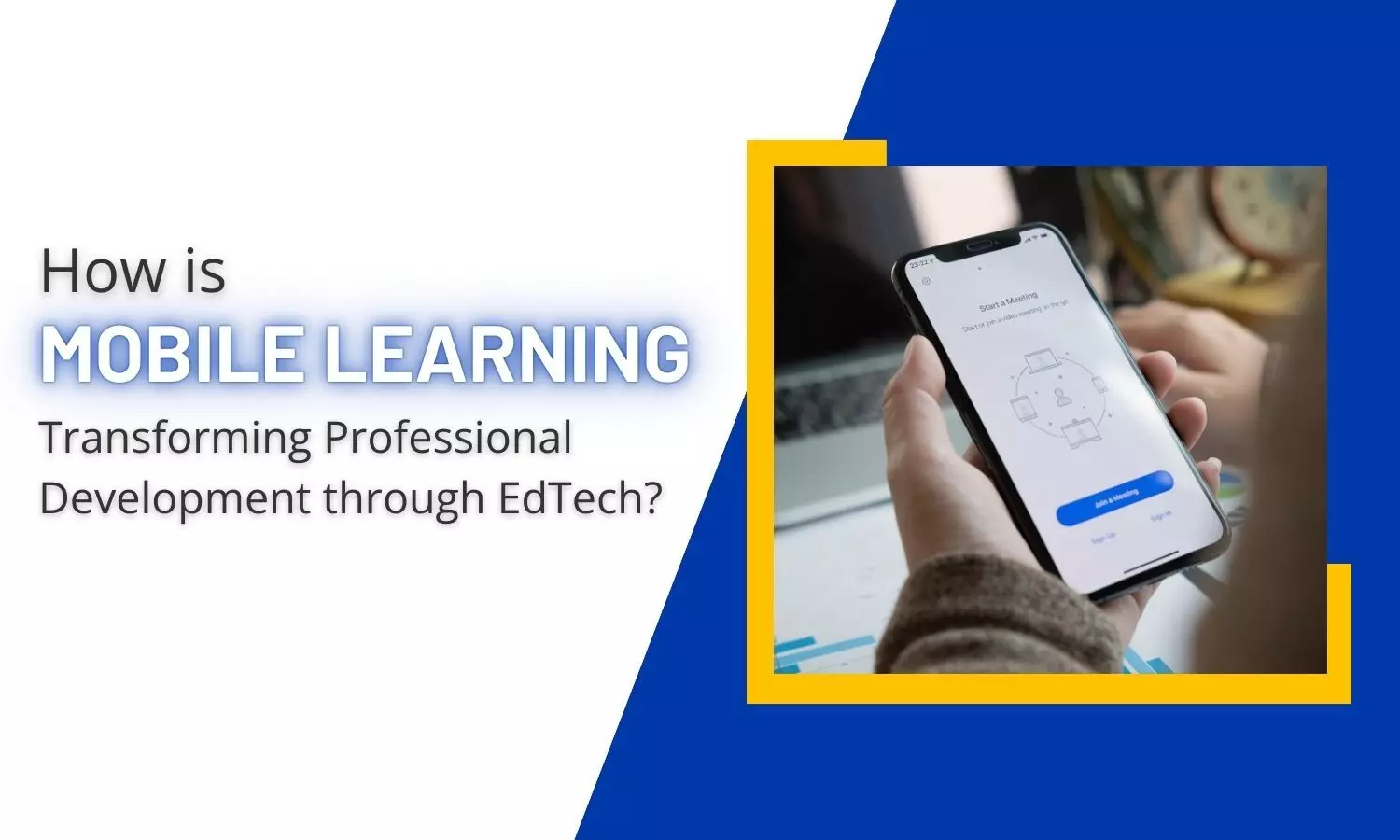How is Mobile Learning Transforming Professional Development through EdTech?
EdTech is transforming education in the digital age by enhancing personalization, accessibility, and knowledge retention. Mobile learning, in particular, has emerged as a key driver, enabling students to access educational resources anytime and anywhere.
How is Mobile Learning Transforming Professional Development through EdTech?

EdTech is changing the nature of learning in today's digital age, making it more personalized, accessible, and long-lasting. While technology improvements continue, mobile learning, sometimes known as "m-learning," has emerged as a major driver in the Edtech sector, allowing students to access educational resources from anywhere and at any time. This unique trend broadens access to knowledge, allowing students to remain competitive in a fast changing labor market. From workplace training to skill development, mobile learning has transformed professional development by making it more adaptable, accessible, and personalized to individual needs
Mobile Learning in India
The traditional educational model has been in place for decades, with students attending classrooms and being taught in person by teachers. However, with the rapid advancement of technology, there has been a significant shift to digital education in recent years. This shift is not limited to using computers or tablets in the classroom; it also involves mobile learning via cell phones and other portable devices. According to the Annual Status of Education Report (ASER) 2023, 89% of Indian students aged 14 to 18 have a smartphone at home, and 92% can use it. Approximately two-thirds of them used smartphones for academic purposes, indicating a significant shift in educational techniques.
The Benefits of EdTech and Mobile Learning in Education
Personalized and Customized Learning Experiences: Mobile learning enables personalized and adaptive learning experiences based on students preferences, interests, and learning styles. Students' data can be analyzed, progress, and personalized learning routes can be offered based on learners' skills. Furthermore, adaptive learning algorithms take into account learners' skill levels and learning needs, ensuring that they receive tailored support. As a result, presenting students with resources that are relevant to their learning objectives improves their engagement, motivation, and retention.
Accessibility: As most Indian students have access to a smartphone or tablet, businesses are increasingly focusing on supporting them in making the best use of their screen time for academic objectives. With smartphones' mobility, individuals can access learning resources and course materials from anywhere and at any time. Such flexibility overcomes the problems that traditional classrooms present, allowing students to continue their education at their own speed and on their own terms.
Collaborative Learning: Mobile learning brings new opportunities with features such as discussion boards, virtual classrooms, and collaborative tasks. As a result, students can communicate with teachers and other students all over the world, exchange ideas, receive feedback, and engage in thought-provoking debates. Similarly, it improves the learning process by offering innovative concepts and encouraging a deeper knowledge of the topic matter.
In conclusion, mobile learning represents a substantial shift in how education is delivered, accessed, and experienced in the digital age. Various modern technologies enable instructors and students to transcend beyond traditional venues and adopt a more flexible, personalized, and accessible approach to education. They also offer several opportunities for lifelong learning, skill development, and empowerment, ranging from 24-hour access to learning resources to personalized, adaptive learning experiences. Furthermore, as EdTech advances, mobile learning's potential to transform education and empower learners remains boundless.
(This article is authored by By, Muddassar Nazar, CEO, Birla Brainiacs)

